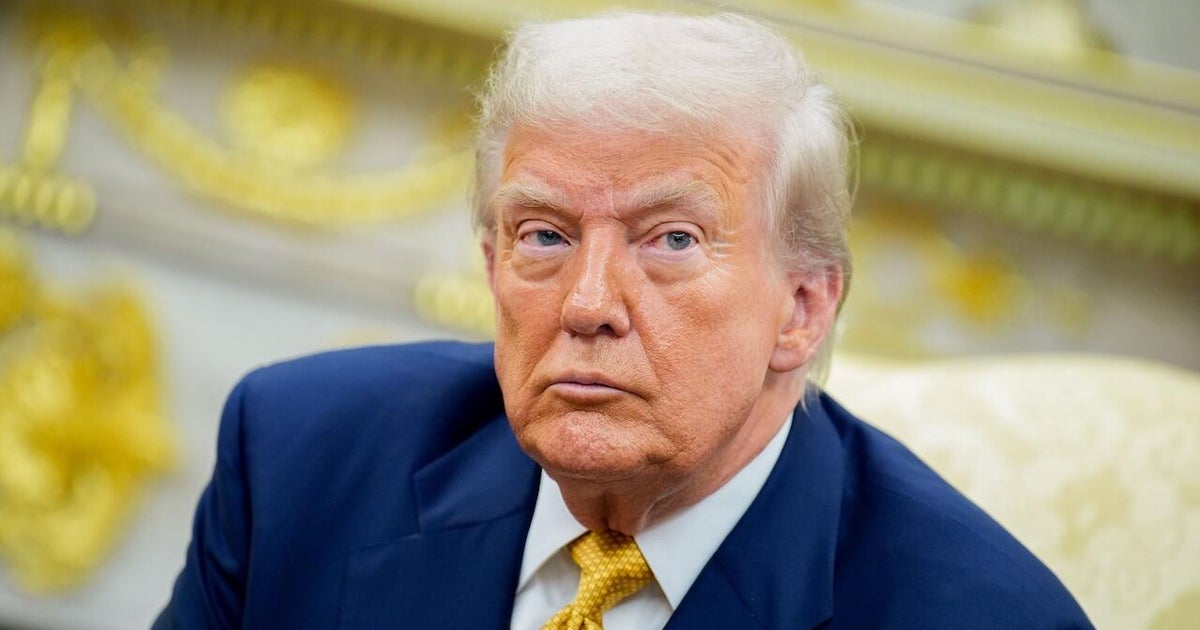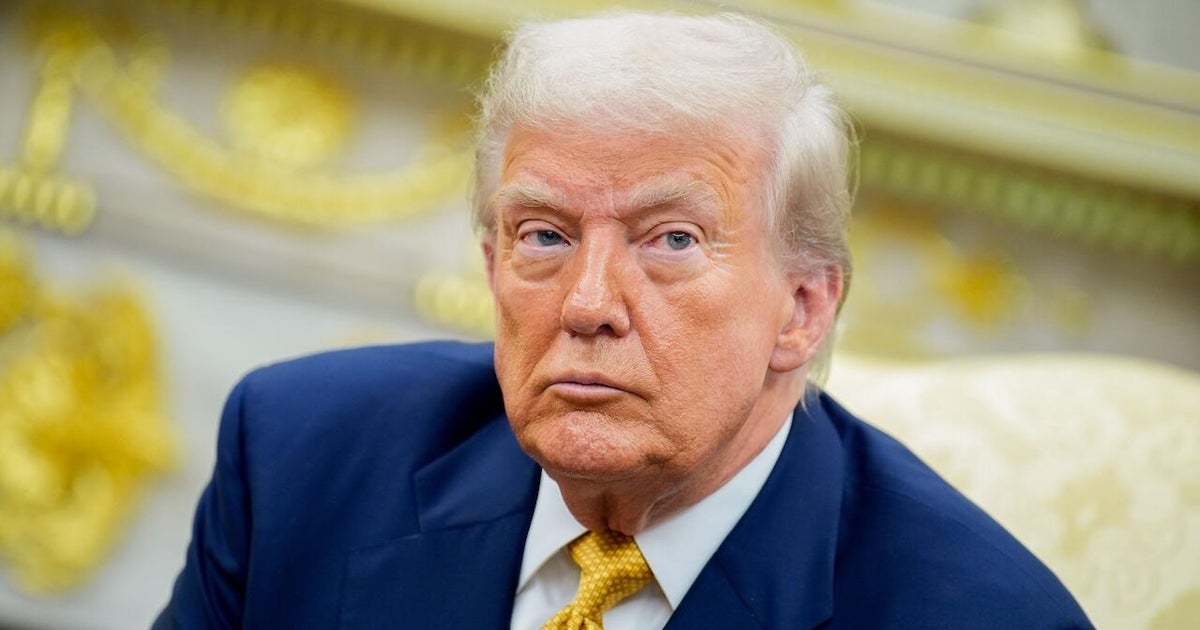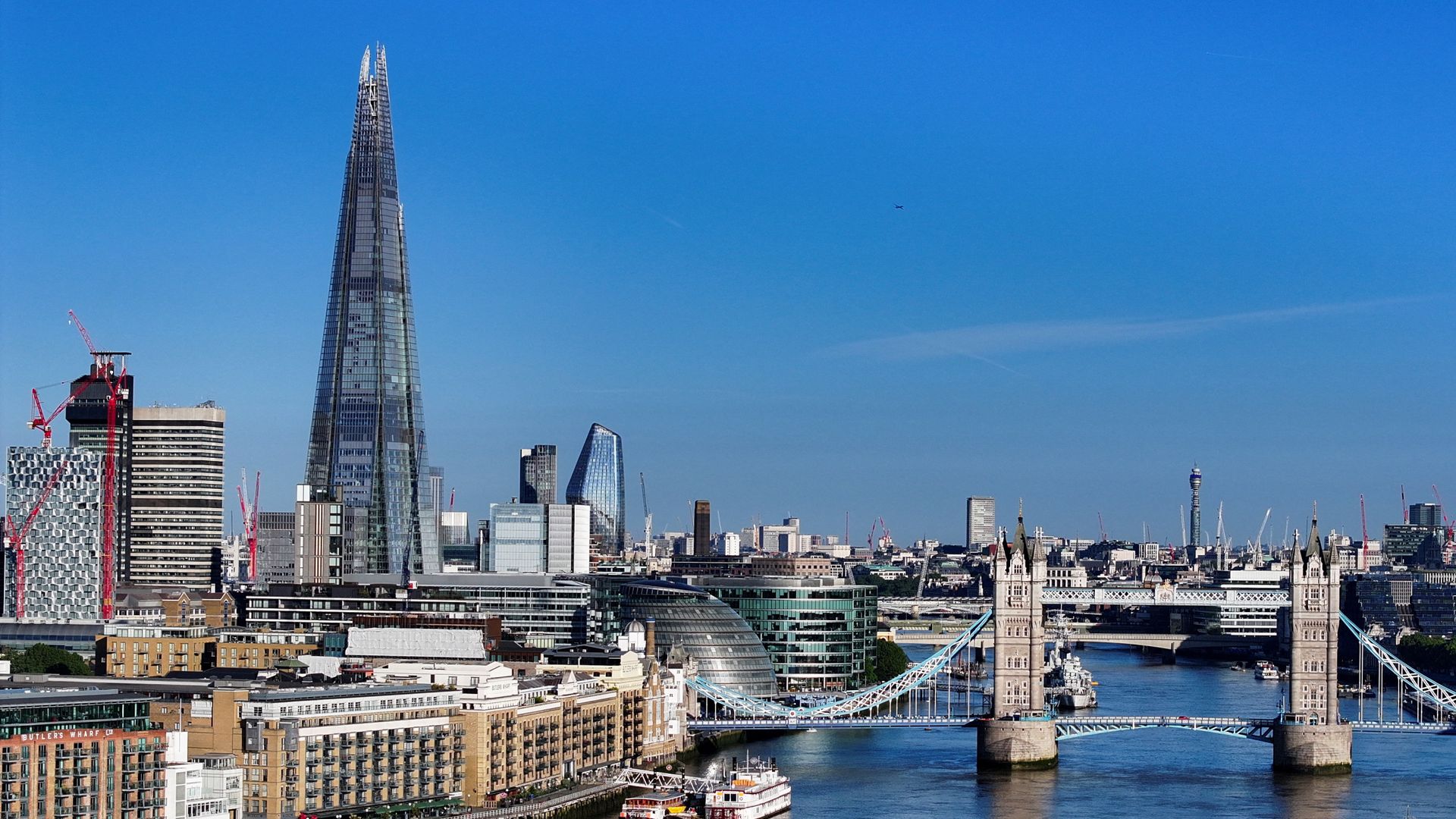

President Trump said Tuesday he has struck a "massive" trade deal with Japan that calls for 15% tariffs on goods the U.S. imports from the country.
The president wrote on Truth Social that, as part of the agreement, Japan will invest $550 billion into the U.S., "which will receive 90% of the Profits." He also said Japan will "open their Country to Trade including Cars and Trucks, Rice and certain other Agricultural Products." The 15% tariff rate floated by Mr. Trump is somewhat lower than the 25% that he proposed earlier this month, or the 24% duties that were proposed on "Liberation Day" in early April.
"This is a very exciting time for the United States of America, and especially for the fact that we will continue to always have a great relationship with the Country of Japan," Mr. Trump wrote on Tuesday.
"They had their top people here, and we worked on it long and hard, and it's a great deal for everybody," Mr. Trump said of the negotiations with Japan, addressing GOP lawmakers Tuesday night during a White House reception.
The Japanese government has not commented publicly on the reported deal. CBS News has reached out to the Japanese Embassy in Washington, D.C., for comment.
Japan is the United States' fifth-largest trading partner, according to federal statistics. Japan bought $79.7 billion worth of American goods last year, and the U.S. imported $148.2 billion worth of Japanese goods.
More than one-third of U.S. imports from Japan last year — or $52.3 billion — were cars and car parts, powered by Japan's massive auto industry, according to federal data. It's unclear whether those goods will be subject to the 15% rate announced Tuesday, or the higher 25% rate on foreign-made cars and parts that Mr. Trump announced earlier this year. CBS News has reached out to the White House for comment.
Mr. Trump said Tuesday evening his administration is working on a separate deal with Alaska involving liquified natural gas in Alaska.
Earlier Tuesday, Mr. Trump also announced trade deals with Indonesia and the Philippines that called for 19% tariffs on those countries' exports to the United States. The administration is still in talks with several other crucial trading partners, including Mexico, Canada and the European Union.
Trump pushes for last-minute trade deal blitz
Mr. Trump has sent letters this month to about two dozen countries — including Japan — telling them to expect higher tariffs starting Aug. 1, unless they strike deals before then to resolve what the president views as unfair trade practices. The threats came near the end of a 90-day pause on most of the sweeping "reciprocal" tariffs that Mr. Trump unveiled against dozens of countries on "Liberation Day" in April.
The Trump administration has hoped the letters will lead to a blitz of trade deals in the coming weeks, before the higher tariff rates kick in at the start of August. Commerce Secretary Howard Lutnick predicted Sunday that the next two weeks will be "for the record books."
The letters have "gotten these countries to the table, and they are going to open their markets or they're going to pay the tariff," Lutnick said on CBS News' "Face the Nation with Margaret Brennan."
When the dust settles, Lutnick said smaller countries can expect to face a roughly 10% tariff — which is the baseline rate imposed by Mr. Trump in April — while larger countries will likely face higher tariffs.
By comparison, the average tariff rate on U.S. imports in 2023 was around 2.5%, according to figures from the Yale Budget Lab.
Mr. Trump argues his tariff strategy is necessary to revive U.S. manufacturing, correct unfair trade practices and bring in additional government revenue. But many economists warn that tariffs can lead to higher inflation and lower economic growth. Federal Reserve Chair Jerome Powell said earlier this month that the central bank has left interest rates relatively high so far this year because it is concerned Mr. Trump's tariffs could push up consumer prices.
Lutnick responded to inflation worries Sunday by saying, "I think you're going to see inflation stay right where it is," and argued that tariffs will help American manufacturers.
"The idea that these importers are more important than the people who employ Americans, I think it's just [the] wrong way of thinking about it," Lutnick told CBS News.









-3.png)



